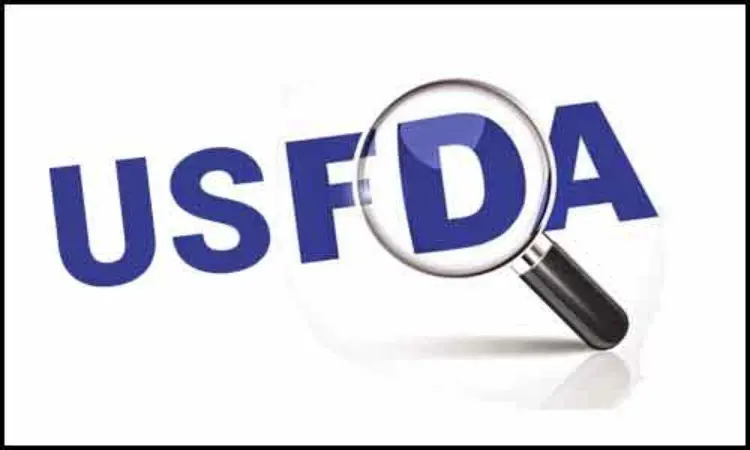- Home
- Medical news & Guidelines
- Anesthesiology
- Cardiology and CTVS
- Critical Care
- Dentistry
- Dermatology
- Diabetes and Endocrinology
- ENT
- Gastroenterology
- Medicine
- Nephrology
- Neurology
- Obstretics-Gynaecology
- Oncology
- Ophthalmology
- Orthopaedics
- Pediatrics-Neonatology
- Psychiatry
- Pulmonology
- Radiology
- Surgery
- Urology
- Laboratory Medicine
- Diet
- Nursing
- Paramedical
- Physiotherapy
- Health news
- Fact Check
- Bone Health Fact Check
- Brain Health Fact Check
- Cancer Related Fact Check
- Child Care Fact Check
- Dental and oral health fact check
- Diabetes and metabolic health fact check
- Diet and Nutrition Fact Check
- Eye and ENT Care Fact Check
- Fitness fact check
- Gut health fact check
- Heart health fact check
- Kidney health fact check
- Medical education fact check
- Men's health fact check
- Respiratory fact check
- Skin and hair care fact check
- Vaccine and Immunization fact check
- Women's health fact check
- AYUSH
- State News
- Andaman and Nicobar Islands
- Andhra Pradesh
- Arunachal Pradesh
- Assam
- Bihar
- Chandigarh
- Chattisgarh
- Dadra and Nagar Haveli
- Daman and Diu
- Delhi
- Goa
- Gujarat
- Haryana
- Himachal Pradesh
- Jammu & Kashmir
- Jharkhand
- Karnataka
- Kerala
- Ladakh
- Lakshadweep
- Madhya Pradesh
- Maharashtra
- Manipur
- Meghalaya
- Mizoram
- Nagaland
- Odisha
- Puducherry
- Punjab
- Rajasthan
- Sikkim
- Tamil Nadu
- Telangana
- Tripura
- Uttar Pradesh
- Uttrakhand
- West Bengal
- Medical Education
- Industry
USFDA lifts Risk Evaluation and Mitigation Strategies for CAR T cell therapies

The U.S. Food and Drug Administration (USFDA) has announced that it has eliminated the Risk Evaluation and Mitigation Strategies (REMS) for currently approved BCMA- and CD19-directed autologous chimeric antigen receptor CAR T cell immunotherapies.
These products are gene therapies that are currently approved to treat blood cancers, such as multiple myeloma and certain types of leukemia and lymphoma.
“The FDA has taken the bold step to remove the Risk Evaluation and Mitigation Strategy requirement from giving CAR T therapies. REMS is a useful safety system, but reevaluation over time helps inform whether a REMS is still needed to ensure that the benefits of a product outweigh its risks,” said FDA Vinay Prasad, M.D., M.P.H., Chief Medical and Scientific Officer and Director, Center for Biologics Evaluation and Research. “Eliminating the REMS that is no longer needed also expedites the delivery of potentially curative treatments to patients and reduces burden on providers.”
A REMS is a safety program that the FDA can require for certain medications with serious safety concerns to help ensure the benefits of the medication outweigh its risks.
The FDA determined that the approved REMS for the following products should be eliminated because a REMS is no longer necessary to ensure that the benefits of the autologous CAR T cell immunotherapies outweigh their risks.
- Abecma (idecabtagene vicleucel)
- Breyanzi (lisocabtagene maraleucel)
- Carvykti (ciltacabtagene autoleucel)
- Kymriah (tisagenlecleucel)
- Tecartus (brexucabtagene autoleucel)
- Yescarta (axicabtagene ciloleucel)
The elimination of REMS for the above products removes the requirements that hospitals and their associated clinics that dispense products must be specially certified and have on-site, immediate access to tocilizumab. The information regarding the risks for these CAR T cell immunotherapies can be conveyed adequately via the current product labeling, which includes a boxed warning for the risks of cytokine release syndrome and neurological toxicities, and medication guides.
“Physicians and institutions now have greater experience identifying and managing toxicities with the currently approved CAR T products,” said Richard Pazdur, M.D., FDA Oncology Center of Excellence Director. “This approach will potentially facilitate patient access to these treatments while continuing to prioritize safety.”
These products will continue to be subject to safety monitoring, through adverse event reporting requirements in accordance with regulations (21 CFR 600.80). The elimination of the REMS for these products does not change FDA requirements for manufacturers to conduct post marketing observational safety studies to assess the risk of secondary malignancies and long-term safety with follow up of patients for 15 years after product administration.
Ruchika Sharma joined Medical Dialogue as an Correspondent for the Business Section in 2019. She covers all the updates in the Pharmaceutical field, Policy, Insurance, Business Healthcare, Medical News, Health News, Pharma News, Healthcare and Investment. She has completed her B.Com from Delhi University and then pursued postgraduation in M.Com. She can be contacted at editorial@medicaldialogues.in Contact no. 011-43720751
Dr Kamal Kant Kohli-MBBS, DTCD- a chest specialist with more than 30 years of practice and a flair for writing clinical articles, Dr Kamal Kant Kohli joined Medical Dialogues as a Chief Editor of Medical News. Besides writing articles, as an editor, he proofreads and verifies all the medical content published on Medical Dialogues including those coming from journals, studies,medical conferences,guidelines etc. Email: drkohli@medicaldialogues.in. Contact no. 011-43720751


